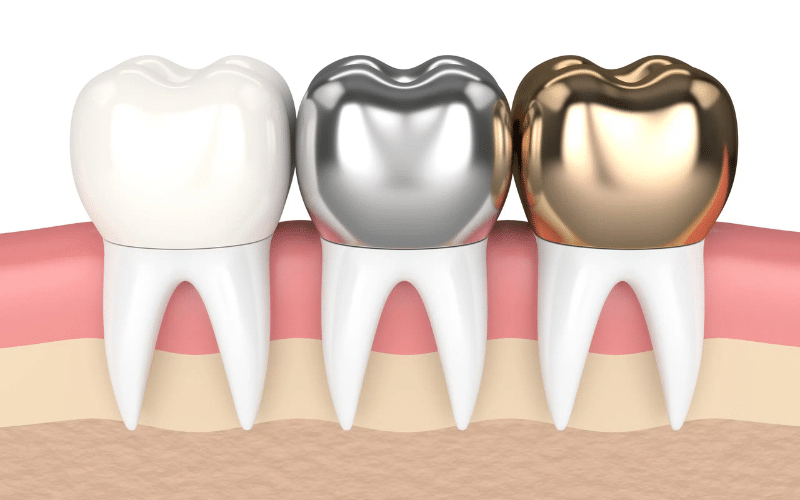4801 Southern Hills Dr, Sioux City, IA 51106, USA

Dental problems can ambush you, even while that minor fracture or toothache seems insignificant right now, it could be a red flag of something more serious! However, how can you tell whether it’s time to get one? Dental crowns aren’t just for severe dental issues—they rescue vulnerable teeth before disaster strikes.
Are you wondering if your smile needs to be saved? Then read this blog and find the unnoticed indicators that say you need a dental crown sooner rather than later!
Toothache or Sensitivity
Constant pain or sensitivity while drinking hot, cold, or sweet drinks and meals can weak and damage your teeth. You have to watch for the following signs:
- Excruciating pain when eating or biting on food.
- Continuous sensitivity of teeth to temperature fluctuations.
- Pain that throbs yet has no apparent reason.
If this pain is ignored, decay or cracks can increase, then a crown can be required to save the tooth and prevent other issues.
Chipped or Fractured Teeth
The strength of your tooth can be compromised by even minor chips or cracks. The typical causes are:
- Biting into ice or hard foods.
- Teeth grinding.
- Sports injuries or accidents.
Dental crowns can stop the damage from getting worse and return the tooth to normal by covering and shielding a cracked tooth.
Big Fillings That Make The Tooth Weak
Over time, a large or outdated dental filling may cause your tooth’s structure to deteriorate. What are the risk elements? They are:
- More than half of the tooth is covered in fillings.
- Regularly changing out the old filling.
- Cracks that are appearing around the filler.
A dental crown prevents additional tooth fractures by providing greater strength and protection than a filling.
Severe Decay of Teeth
More sophisticated treatment is required for tooth decay that is too severe for a simple filling. Here are the symptoms of early decay:
- Teeth with obvious cavities or dark patches.
- Pain during exerting pressure or chewing.
- Pus or swelling close to the gums.
A crown can be placed over the decaying area to stop additional damage and restore the tooth’s appearance and functionality after the tooth has been cleaned and repaired.
Completing a Root Canal Treatment
Root canal therapy saves teeth by extracting infected pulp, although it can leave the tooth brittle. The significance of crowns following a root canal involves these points:
- They guard against tooth fracturing or cracking.
- They restore the tooth’s functionality and strength.
- They stop the infection from spreading.
Tooth loss can come from neglecting a crown following a root canal treatment.
Treatments for dental problems can be expensive and painful if early warning signs are ignored. Although, It can take time to think about getting a dental crown if you have big fillings, noticeable fissures, or constant pain, be sure to act before it’s too late! Consult our dentist right now.



